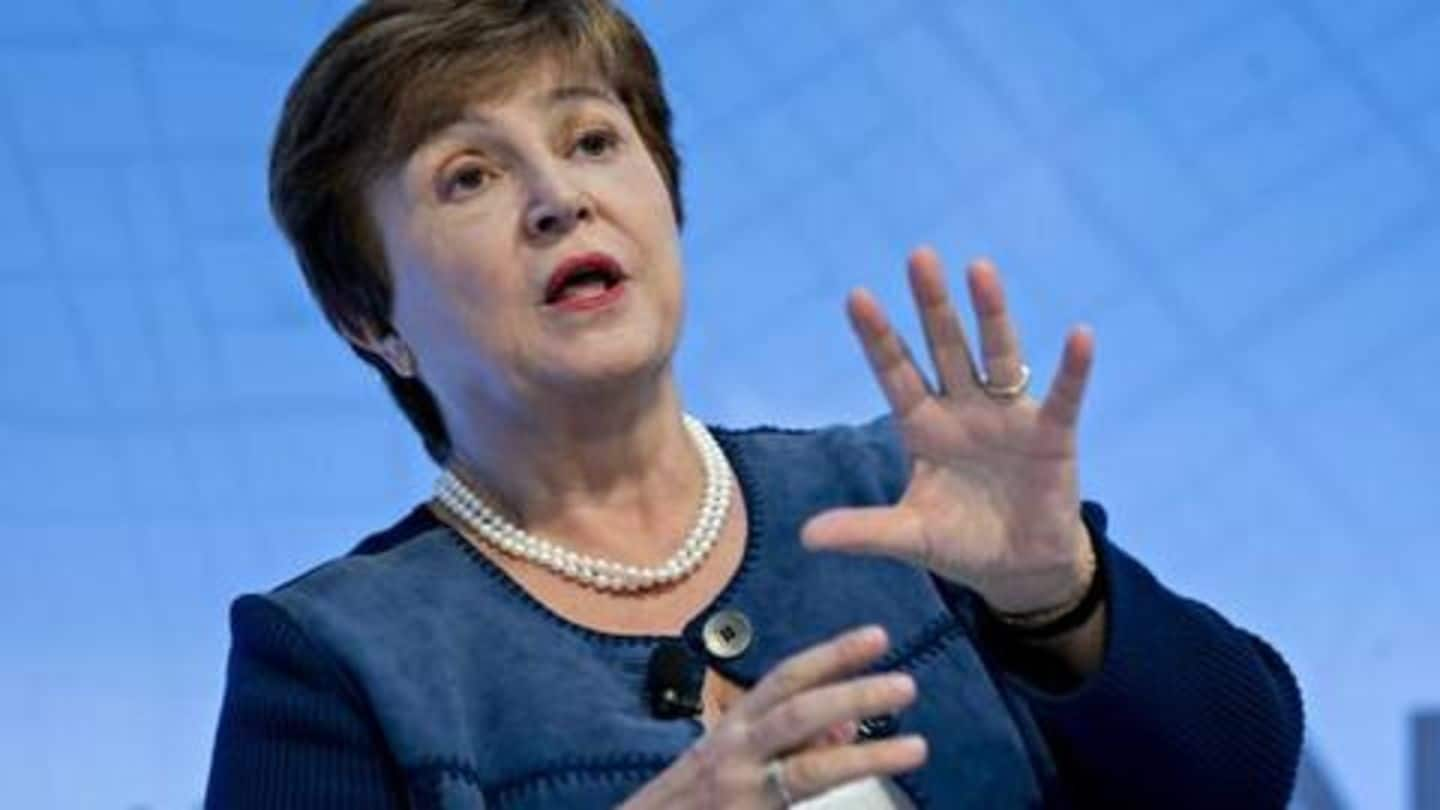
We've entered recession, will be worse than 2009: IMF Chief
What's the story
International Monetary Fund chief Kristalina Georgieva on Friday said the world has entered into a recession, courtesy the coronavirus pandemic and she anticipates that the current global situation to be worse than 2009.
The pandemic, whose outbreak happened in China in December 2019, has killed as many as 27,359 globally and infected 597,185.
133,360 have recovered from the deadly disease.
What she said
Countries are locked down, hundreds have lost jobs
To keep the virus transmission at check, countries, including India, have announced shutdowns, factories have closed, and workers are out of jobs.
According to Georgieva the depth of this recession will depend on two factors — "Containing the virus and having an effective, coordinated response to the crisis".
She said she was heartened to see the coordination among world leaders.
Statement
Small measures won't help in this huge crisis: Georgieva
Georgieva underlined that if the virus isn't defeated everywhere, it won't lead to anything.
"We should not go ... with small measures now when we know that it is a gigantic crisis. We've never seen the world economy standing still. Now we [do]. How we go about revitalizing it is another important topic," she said.
She noted that the worldwide economy came to a "sudden stop".
Details
Many countries have high debt load
The IMF believes the "overall financial needs of emerging markets is $2.5 trillion", and this estimate is on the lower end.
Governments in emerging markets have already suffered an exodus of $83 billion. Though they can cover "this much", the "domestic resources are insufficient".
Many countries have high debt load, she said.
As many as 80 countries have already requested emergency funds.
Suggestion
The IMF chief wants countries to "go big" with spending
Further, Georgieva urged countries to deploy a "massive amount of resources" to deal with the unprecedented damage that the pandemic has caused.
Notably, she also appreciated the $2.2 trillion economic package, green-lit by the US Senate to tackle the problem.
She said, "It is absolutely necessary to cushion the world's largest economy against an abrupt drop the economic activities."